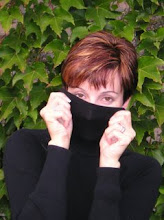December 24
by Peter Paul Reubens (1577-1640)
Here is the Little Door
a poem by Frances/G. K. Chesterton
scored for a capella choir by Herbert Howells
and performed by Chanticleer
Here is the little door, lift up the latch, oh lift!
We need not wander more but enter with our gift;
Our gift of finest gold,
Gold that was never bought nor sold;
Myrrh to be strewn about his bed;
Incense in clouds about his head;
All for the Child who stirs not in his sleep.
But holy slumber holds with ass and sheep.
Bend low about his bed, for each he has a gift;
See how his eyes awake, lift up your hands, O lift!
For gold, he gives a keen-edged sword
(Defend with it Thy little Lord!),
For incense, smoke of battle red.
Myrrh for the honoured happy dead;
Gifts for his children terrible and sweet,
Touched by such tiny hands and
Oh such tiny feet.
a poem by Frances/G. K. Chesterton
scored for a capella choir by Herbert Howells
and performed by Chanticleer
Here is the little door, lift up the latch, oh lift!
We need not wander more but enter with our gift;
Our gift of finest gold,
Gold that was never bought nor sold;
Myrrh to be strewn about his bed;
Incense in clouds about his head;
All for the Child who stirs not in his sleep.
But holy slumber holds with ass and sheep.
Bend low about his bed, for each he has a gift;
See how his eyes awake, lift up your hands, O lift!
For gold, he gives a keen-edged sword
(Defend with it Thy little Lord!),
For incense, smoke of battle red.
Myrrh for the honoured happy dead;
Gifts for his children terrible and sweet,
Touched by such tiny hands and
Oh such tiny feet.
This is a carol that is commonly performed for Epiphany, and is sung from the point of view of the Magi, who are approaching the infant Christ, born in a stable in Bethlehem. I find it to be positively mesmerising... the reverent anticipation of the Three Kings seeking the baby Jesus is so perfectly reflected in the soft, delicate opening of the piece. The Kings, who have travelled together for so long, seeking the infant Christ, sing in perfect unity as the discovery is made, and their gifts are presented. There is a dramatic juxtaposition between the purity and innocence of the tiny newborn child, and the future that they predict for him, which is foreshadowed in their offerings. As the tone of the poem changes in the second verse, composer Herbert Howells amplifies the melody both dynamically and harmonically. The choir sings in unison the ferocious line, "Defend with it Thy little lord!", only to be reduced once again to the realization of the humanity of the newborn Saviour, who, in spite of the awe-inspiring life they prophesised for him, is still just a wee babe, after all.
It has long been debated as to who actually penned the words to this lovely poem. G. K. Chesterton was a noted English author (1874-1936), but his wife, Frances, was also a gifted writer. She penned many Christmas-themed pieces, including poems, stories, a short play, and the lovely children's carol, "How Far is it to Bethlehem?" G. K. Chesterton is given an author credit for "Here is the Little Door" in many scholarly publications, and the use of paradox in the verse would seem to fit with the style of a great deal of his writing. However, I feel that it is important to give credit to both authors, since there is evidence of both possibilities.





























No comments:
Post a Comment